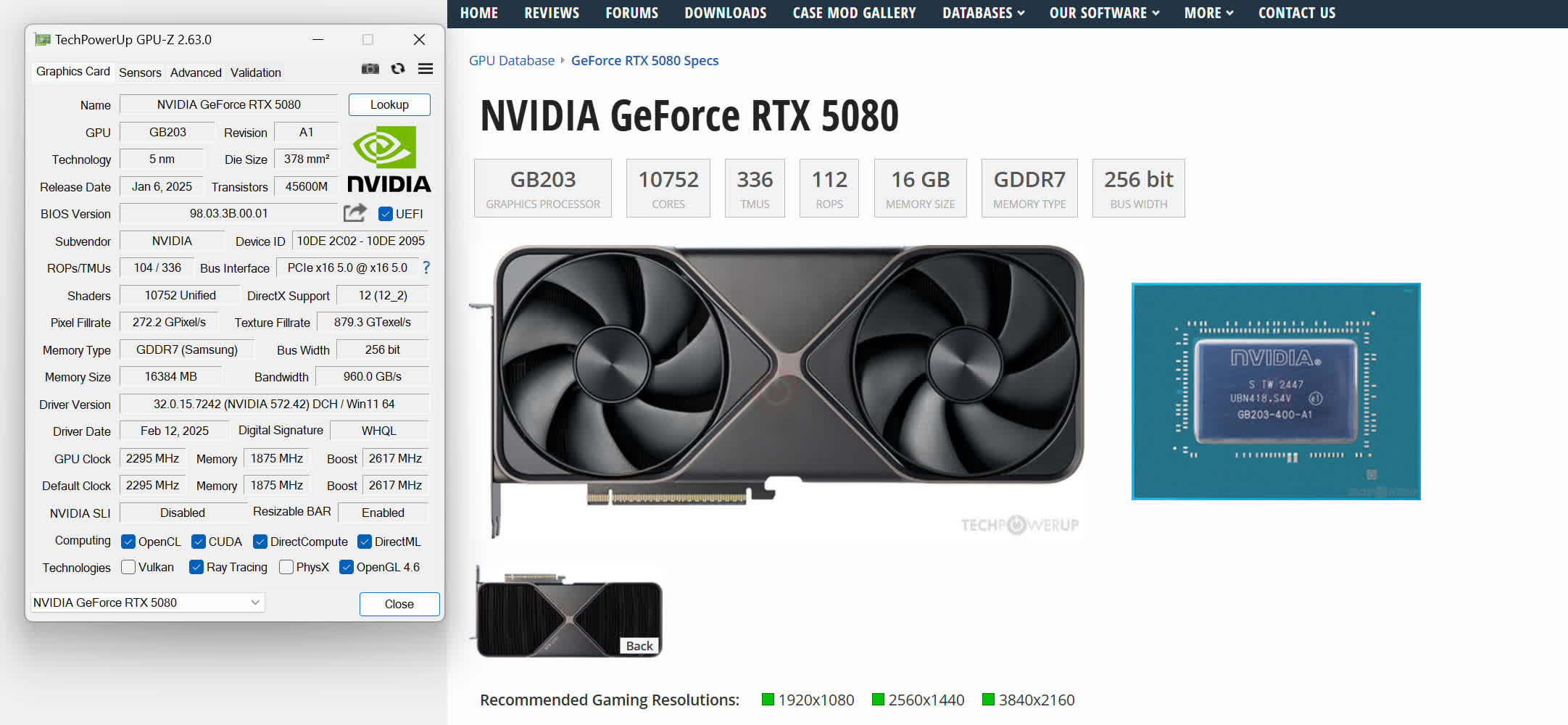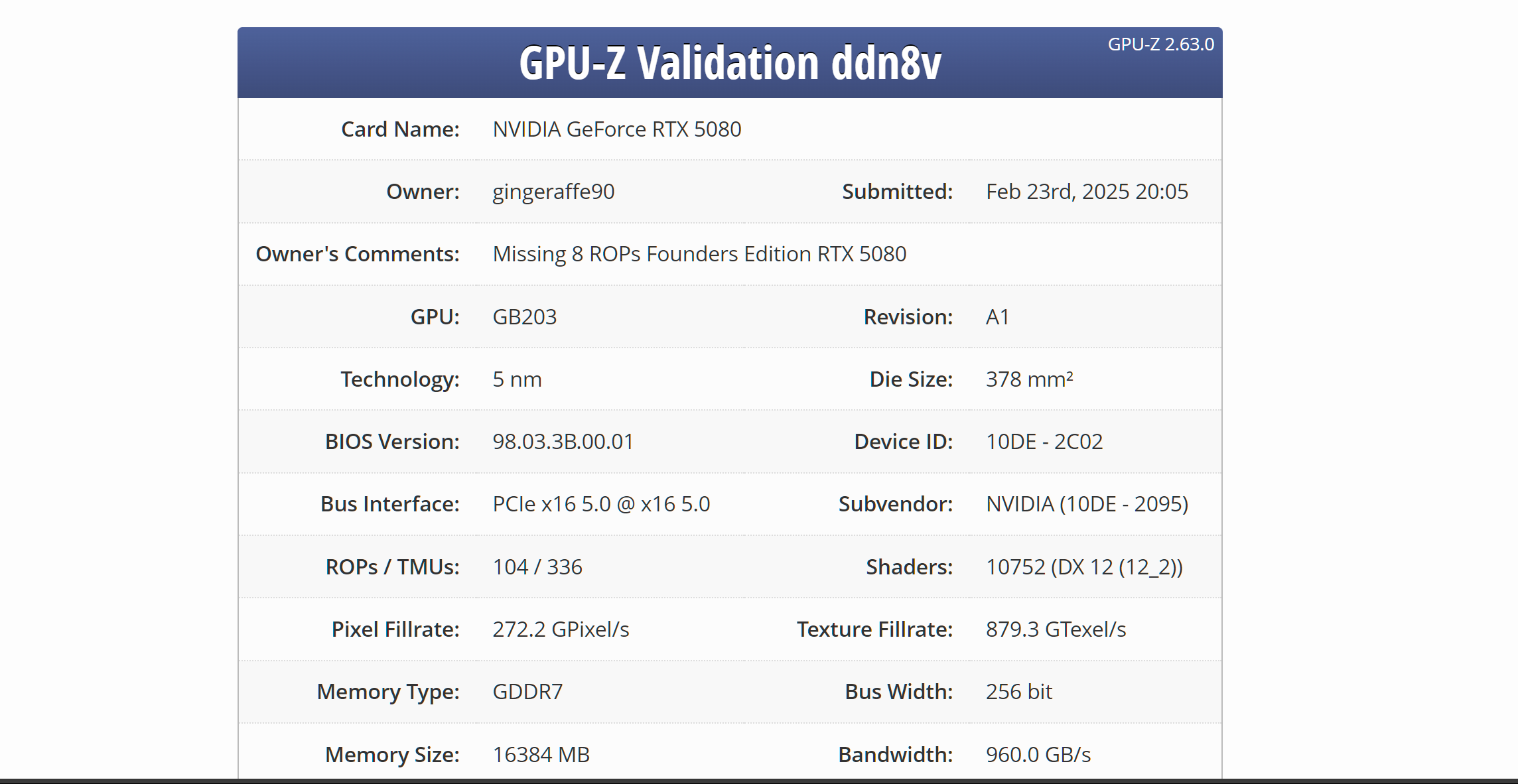Facepalm: It’s another day, another piece of bad news for Nvidia’s Blackwell consumer graphics cards. After it was reported that RTX 5090 and RTX 5070 Ti units from multiple vendors were missing ROP units, the first case of an RTX 5080 with the same issue has surfaced.
Redditor gingeraffe90 posted a GPU-Z screenshot of his RTX 5080 specs. The listed number of Raster Operations Pipeline (ROP) units in the card is 104, but it’s supposed to be 112.
It’s believed that this is the fifth case of an RTX 5000-series card missing ROPs, but the first instance of an RTX 5080 missing the components.
Reports arrived over the weekend of customers who had bought RTX 5090 cards – from multiple board partners – and discovered the GPUs came with 168 ROP units instead of 178. This impacted performance by up to five percent, depending on the workload. Some games saw a noticeable FPS decrease, especially Elden Ring, while others, including Starfield and Doom Eternal, saw almost no performance declines.
Nvidia later confirmed an issue had affected less than half a percent of RTX 5090, 5090D, and 5070 Ti GPUs, which shipped with at least one ROP missing. The company added that it could affect gaming performance by four percent, but AI and compute performance were unaffected.
Nvidia said the manufacturing problem had been corrected and advised all affected customers to contact the board vendor that made the card.
While Nvidia didn’t name the RTX 5080 as also being impacted, it seems at least one of the $999 (Founders Edition) cards has also been affected. The specs of gingeraffe90’s RTX 5080 have been validated, leaving the question: did Nvidia purposely not mention the card in its statement, hoping that affected owners wouldn’t notice the problem?
ROP units play a key role in rasterization by handling final pixel processing, including blending, depth testing, and writing rendered pixels to the framebuffer.
It’s just another reason in the long list of why the RTX 5000 series is proving to be one of Nvidia’s most disappointing GPU generations in years. In addition to the small generational performance uplifts, melting connectors, and non-existent stock levels, there were reports recently that Nvidia is now investigating RTX 50-series crashes and black screen issues.
Source link

